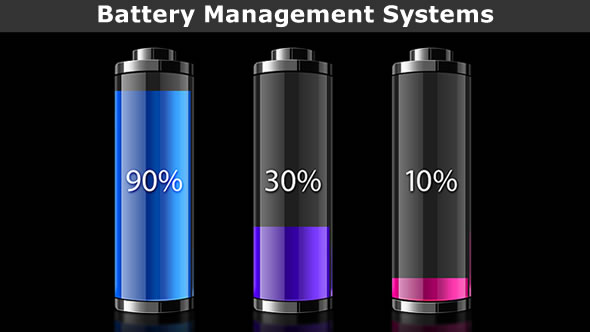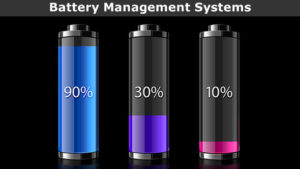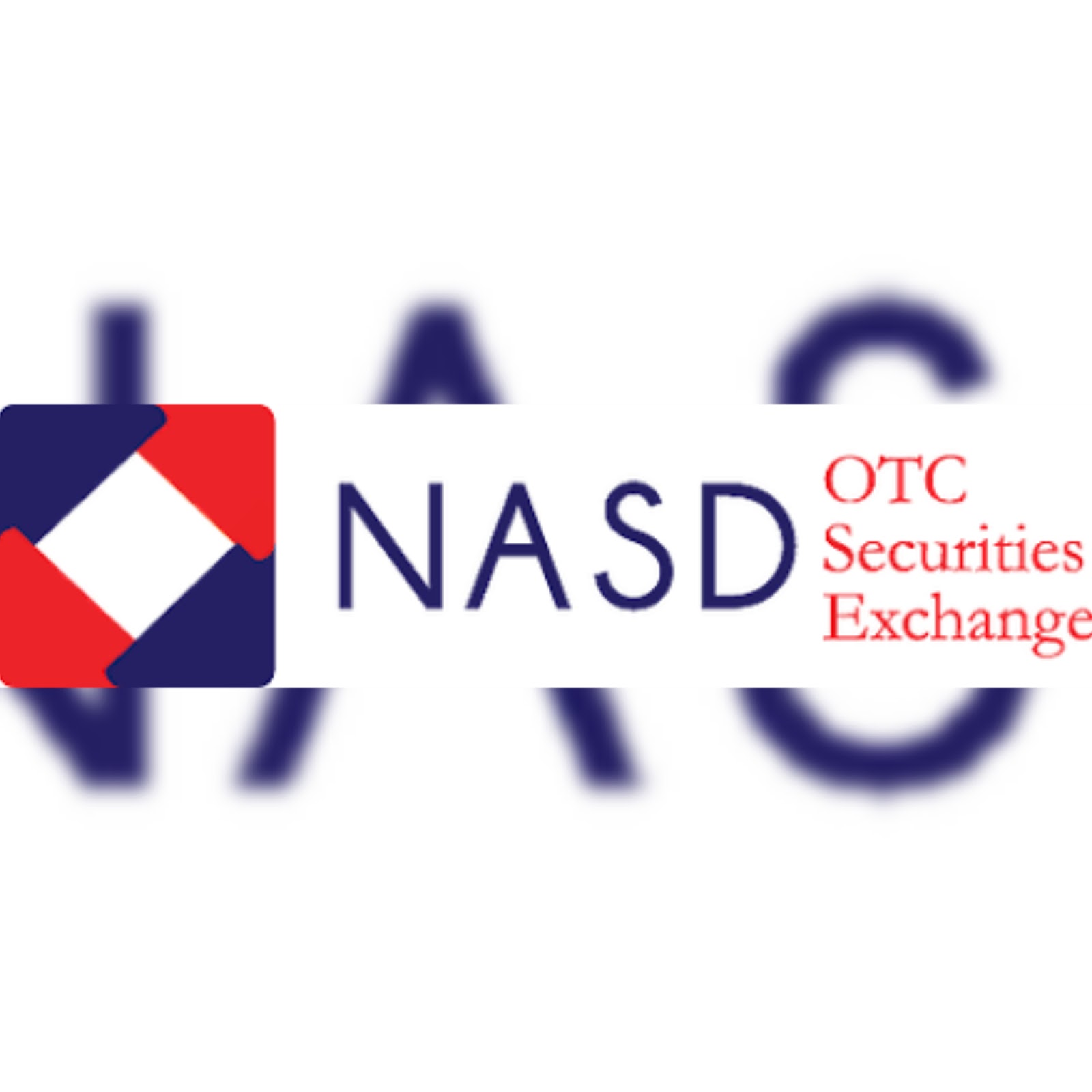Economy
Battery Mgt System Market Revenue to Rise at CAGR of 19.9%


By Modupe Gbadeyanka
Future Market Insights (FMI) delivers key insights on the global battery management system (BMS) market in its latest report titled, “Battery Management System Market: Global Industry Analysis and Opportunity Assessment, 2015–2025”.
Global battery management system market revenue is expected to increase at a CAGR of 19.9% during the forecast period (2015–2025). Battery management system is an electronic system that helps to maintain optimal health of rechargeable batteries.
BMS controls load environment, monitors battery state and accordingly balances battery charging. Battery management system prolongs battery life, helps to prevent battery damage due to overcharging and voltage fluctuations and manages optimal state of charging.
BMS interfaces with the host application to provide real-time information regarding battery health.
BMS follows three types of topologies, which are distributed, centralized and modular.
Distributed BMS has a single communication cable controller and battery; a cell board is installed at each cell. Centralized BMS has a single controller and is connected to battery cells with communication wires.
Modular BMS has multiple controllers, with each controller handling a certain number of cells.
Consumption of rechargeable batteries in the electronics sector is growing. Rechargeable batteries are used in products such as power tools and vacuum pumps, and growth in demand for these products is driving global battery management system market revenue.
In the recent past, demand for power tools, garden tools, portable medical tools, portable battery packs and various other powered devices and tools has been increasing in markets in emerging economies, particularly in Asia.
An increasing number of players in the market has resulted in intensified competition, is leading to price wars, reduced profit margins and is hampering growth of the global battery management system market.
OEMs in industries such as automotive and telecom have significant bargaining power and dictate pricing of battery management systems.
This leads to low profit margins for manufacturers. In cost-sensitive markets such as India and ASEAN, intense competition among battery management system providers is also resulting in price wars.
Some battery management systems are incompatible with complex battery structures and this is expected to hamper growth of the market to a certain extent.
The global battery management system market is segmented on the basis of verticals into automotive, energy, telecom and drones.
Demand for BMS from the automotive vertical for e-Vehicle application is significantly high, and this sub-segment is estimated to account for 14.2% revenue share of the global battery management system market by the end of 2015.
As per FMI estimates, e-Vehicle sub-segment is projected to expand at a CAGR of 21.1% during the forecast period.
The automotive segment is estimated to dominate the global market with 39.5% share in terms of revenue by 2015 end, followed by energy and consumer/handheld segment with share of 26.3% and 17.4% respectively.
Automotive segment dominated the global market in terms of revenue in 2014 and is expected to register a CAGR of 20.8% during 2015and 2025.
On the basis of topology, the global battery management system market is segmented into distributed, centralized and modular.
The centralized segment in the global battery management system is estimated to account for 38.7% revenue share of the market by the end of 2015. According to FMI estimates, the centralized segment would expand at a CAGR of 19.6% between 2015 and 2025.
The distributed segment is estimated to account for 34.4% share of the overall market by the end of 2015, and is forecast to expand at a CAGR of 19.5% over the forecast period.
The global battery management system market is segmented on the basis of regions into North America, Eastern Europe, Middle East & Africa (MENA), Asia Pacific Excluding Japan (APEJ), Western Europe, Latin America and Japan. By the end of 2015, APEJ is estimated to be the dominant region, accounting for around 29.1% share of the global market, followed by the North America and Western Europe.
APEJ battery management system market is estimated to be valued at US$ 557.2 Million by 2015 end and reach $3,807.1 million by 2025.
By the end of 2015, North America and Western Europe are estimated to be the other major contributors to global market, accounting for 24.5% and 16.3% share respectively of the overall market revenue. The market in Japan is estimated to account for 10.5% share of the global market by 2015 end, and register a CAGR of 18.3% during the forecast period.
Key players across the supply chain of the global battery management system market include OEMs/suppliers of BMS, BMU integrators and electronic devices manufacturers that manufacture BMS. Companies analysed in the report include The Ventec Company, Nuvation Engineering, Ashwoods Energy Limited, TWS, Lithium Balance Corporation, Vecture Inc., Toshiba Corporation, L&T Technology Services, Merlin Equipment Ltd., AVL, Navitas System LLC and Johnson Matthey Battery Systems.Analysis reveals that battery management system companies should continue to invest in markets in APEJ and North America to increase market share and expand consumer base
Economy
FrieslandCampina, Afriland Properties Weaken NASD Index by 0.24%

By Adedapo Adesanya
The NASD Over-the-Counter (OTC) Securities Exchange fell by 0.24 per cent on Friday, April 25 after the duo of FrieslandCampina Wamco Nigeria Plc and Afriland Properties Plc landed on the losers’ table.
FrieslandCampina Wamco Nigeria Plc depreciated by N2.58 to sell at N35.37 per unit compared with the previous day’s N37.95 per unit, and Afriland Properties Plc lost 2 Kobo to close at N17.78 per share versus Thursday’s closing value of N17.80 per share.
However, Geo-Fluids Plc appreciated by 10 Kobo during the trading day to sell for N1.80 per unit, in contrast to the preceding session’s N1.70 per unit. The rise in the price of the stock could not prevent the fall of the bourse yesterday.
Consequently, the market capitalisation of the trading platform went down by N4.64 billion to N1.914 trillion from N1.918 trillion and the NASD Unlisted Security Index (NSI) declined by 7.92 points to 3,269.06 points from 3,276.98 points.
The final trading session of the week ended with a surge of 1,695.8 per cent in the volume of securities transacted to 3.7 billion units from the 206.2 milion units transacted in the previous trading day.
Equally, the value of transactions jumped by 2,592.6 per cent to N9.5 billion from N354.1 million on Thursday, and the number of deals decreased by 47.4 per cent to 20 deals from the 38 deals recorded a day earlier.
Impresit Bakolori Plc remained the most active stock by volume on a year-to-date basis with 533.9 million units sold for N520.9 million, followed by Geo-Fluids Plc with 259.3 million units worth N456.1 million, and Okitipupa Plc with 153.6 million units valued at N4.9 billion.
Also, Okitipupa Plc remained the most active stock by value on a year-to-date basis with 153.6 million units valued at N4.9 billion, trailed by FrieslandCampina Wamco Nigeria Plc with 15.6 million units worth N598.5 million, and Impresit Bakolori Plc with 533.9 million units sold for N520.9 million.
Economy
Nigeria’s Stock Market Gives up 0.30% Friday

By Dipo Olowookere
A 0.30 per cent fall was recorded by the Nigerian Exchange (NGX) Limited on Friday as a result of profit-taking in the industrial goods sector.
This was mainly caused by sell-offs in Dangote Cement Plc, which released its financial statements for the first quarter of 2025 yesterday.
The cement maker lost 10.00 per cent during the session to trade at N432.00, Regency Alliance lost 8.06 per cent to close at 57 Kobo, VFD Group depreciated by 7.57 per cent to N17.10, Chams declined by 7.27 per cent to N2.04, and Sovereign Trust Insurance crashed by 6.12 per cent to 92 Kobo.
Conversely, International Breweries, Legend Internet, and Ikeja Hotel gained 10.00 per cent each to sell for N7.70, N6.82, and N12.10 apiece, Vitafoam Nigeria surged by 9.93 per cent to N44.85, and Eterna rose by 9.92 per cent to N39.90.
The industrial goods index was down by 4.73 per cent on Friday, as the others finished in green territory.
The consumer goods space rose by 2.21 per cent, the banking sector appreciated by 1.55 per cent, the insurance counter expanded by 1.50 per cent, the energy sector increased by 0.07 per cent, and the commodity industry went up by 0.04 per cent.
At the close of transactions, the All-Share Index (ASI) went down by 321.21 points to 105,753.05 points from 106,074.26 points and the market capitalisation shrank by N202 billion to N66.465 trillion from N66.667 trillion.
The level of activity increased yesterday as the trading volume, value, and number of deals grew by 30.40 per cent, 94.23 per cent, and 17.64 per cent, respectively.
This was because investors transacted 428.1 million shares worth N20.2 billion in 14,284 deals compared with the 328.3 million shares valued at N10.4 billion in traded in 12,142 deals a day earlier.
GTCO led the activity chart with 60.7 million equities sold for N3.8 billion, Fidelity Bank traded 41.4 million stocks worth N829.3 million, Access Holdings exchanged 40.6 million shares valued at N968.3 million, MTN Nigeria sold 33.0 million equities for N8.2 billion, and Zenith Bank transacted 22.9 million stocks worth N1.1 billion.
Economy
Naira Now N1,599/$1 at Official Market, N1,605/$1 at Black Market

By Adedapo Adesanya
The Naira extended its gains against the US Dollar in the Nigerian Autonomous Foreign Exchange Market (NAFEX) on Friday, April 25 by 0.22 per cent or N3.59 to sell for N1,599.42/$1 compared with the N1,603.01/$1 it was traded in the previous session.
The Nigerian currency also improved its value against the Euro in the official market by N1.36 to close at N1,818.53/€1 compared with Thursday’s closing price of N1,819.89/€1.
However, the domestic currency depreciated against the Pound Sterling in the same market segment yesterday by N1.90 to wrap the session at N2,130.44/£1 versus the preceding session’s rate of N2,128.50/£1.
At the black market segment, the Naira appreciated against the greenback on Friday by N2 to quote at N1,605/$1, in contrast to the previous day’s value of N1,607/$1.
In the cryptocurrency market, a possible regulatory progress about digital assets in the US spurred buying interest among investors during the trading session.
The chairman of the US Securities and Exchange Commission, Mr Paul Atkins, was at a crypto roundtable on Friday and he devoted his inaugural speech to assuring the industry that he will continue to remake securities policy to favor digital assets innovation.
Litecoin (LTC) rose by 3.0 per cent to $87.24, Dogecoin (DOGE) grew by 2.7 per cent to $0.1862, Bitcoin (BTC) increased by 1.3 per cent to $94,687.84, Ethereum (ETH) jumped by 1.2 per cent to $1,797.51, Cardano (ADA) improved by 0.9 per cent to $0.7235, and Ripple (XRP) gained 0.6 per cent to close at $2.20.
On the flip side, Solana (SOL) depreciated by 0.9 per cent to $151.64, and Binance Coin (BNB) lost 0.8 per cent to sell for $602.89, while the US Dollar Tether (USDT) and the US Dollar Coin (USDC) remained unchanged at $1.00 each.
-

 Feature/OPED5 years ago
Feature/OPED5 years agoDavos was Different this year
-
Travel/Tourism9 years ago
Lagos Seals Western Lodge Hotel In Ikorodu
-

 Showbiz2 years ago
Showbiz2 years agoEstranged Lover Releases Videos of Empress Njamah Bathing
-

 Banking7 years ago
Banking7 years agoSort Codes of GTBank Branches in Nigeria
-

 Economy2 years ago
Economy2 years agoSubsidy Removal: CNG at N130 Per Litre Cheaper Than Petrol—IPMAN
-

 Banking2 years ago
Banking2 years agoFirst Bank Announces Planned Downtime
-

 Sports2 years ago
Sports2 years agoHighest Paid Nigerian Footballer – How Much Do Nigerian Footballers Earn
-

 Technology4 years ago
Technology4 years agoHow To Link Your MTN, Airtel, Glo, 9mobile Lines to NIN













